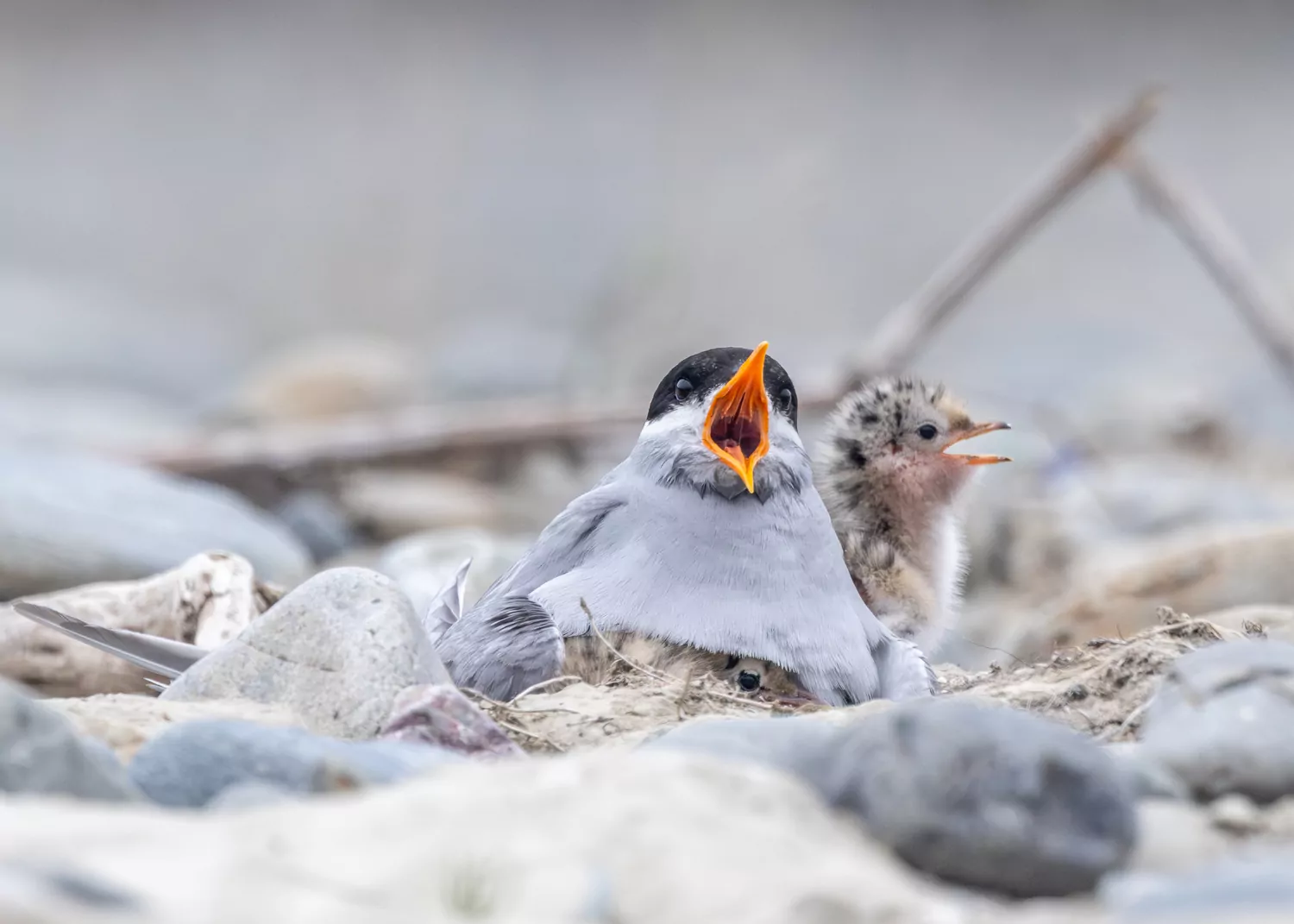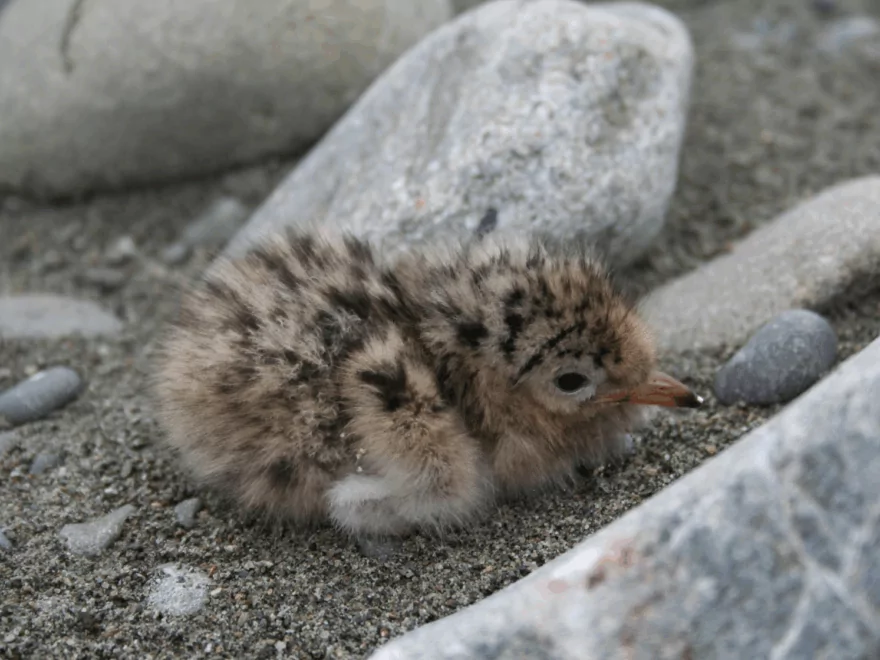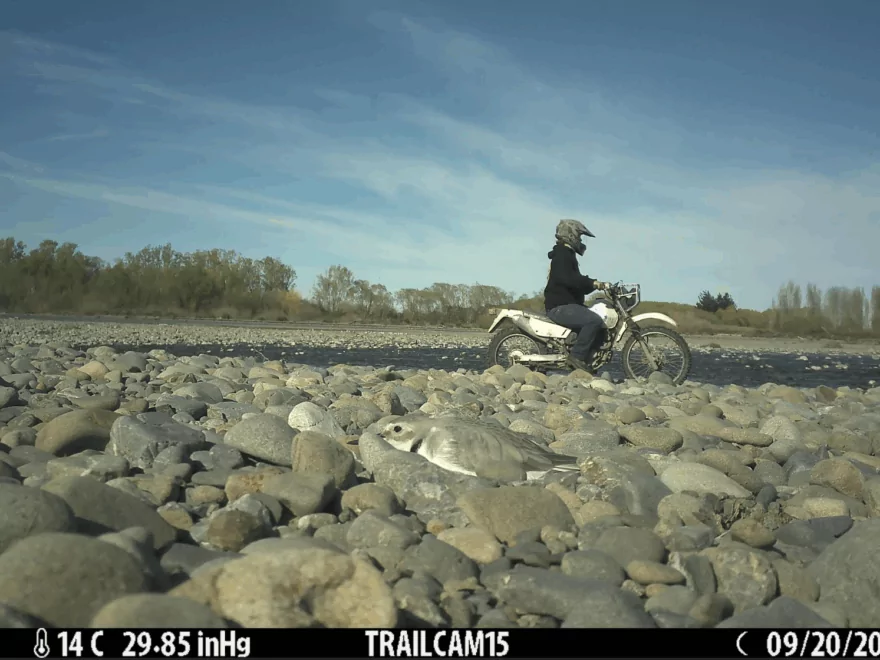Escaped youth tracked by Eagle helicopter, found hiding in New Brighton
The young person who escaped from a youth justice facility in Rolleston has been located...

Nesting season is underway for some of Canterbury’s most threatened braided river birds, and locals are being urged to play their part in helping keep them safe.
Species such as the wrybill and banded dotterel have already begun nesting on rivers like the Ashley and Waimakariri, with black-fronted terns and black-billed gulls soon to follow.

Black-fronted tern chick, credit Jack van Hal, DOC
These birds nest directly on the gravel beds of braided rivers from September to February, making their well-camouflaged nests extremely vulnerable to disturbance.
Eggs and chicks are easily lost due to human activity, predators, weeds, and changes in river flow.
Even a single vehicle or unleashed dog can destroy a nest, and predators such as stoats, cats, and gulls take a heavy toll on young birds.
The Ashley Rivercare Group has spent more than 20 years protecting these birds, and this year they recorded the return of a wrybill they first banded 15 years ago.
Nicknamed “the wizard,” the male bird is back nesting with a mate, though their first attempt was tragically lost to an introduced German owl.
Agencies including Environment Canterbury, the Department of Conservation (DOC), and local community groups are working together to support these birds through predator control, habitat restoration, weed removal, and ongoing monitoring
“Canterbury’s braided rivers are one of the rarest ecosystems on the planet,” says Environment Canterbury’s Principal Biodiversity Advisor Frances Schmechel. “We can’t afford to lose the birds that depend on them.”

Ashley R trail cam dirt bikes
DOC Operations Manager Leeann Ellis says the birds are globally unique and adapted only to this environment.
“Wrybills are the only bird in the world with a sideways-curved bill, and they only nest on South Island braided rivers. If we don’t protect them here, they have nowhere else to go.”
The public can help by avoiding riverbeds during nesting season, keeping dogs on leashes, taking rubbish home, and supporting local conservation efforts through volunteering or donations.
“Every person who visits a braided river has a role to play,” says Schmechel. “Even small actions can make a big difference for these vulnerable birds.”


